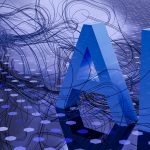In today’s fast-paced digital world, marketing agencies are under constant pressure to deliver results. The emergence of artificial intelligence (AI) offers a game-changing opportunity for UK-based marketing agencies to enhance their campaign optimization strategies. By integrating AI, agencies can unlock the potential to increase efficiency, personalize content, and maximize returns on investment. This article delves into how agencies can leverage AI to revolutionize their marketing campaigns and outperform competitors.
Enhancing Data Analysis for Targeted Campaigns
Data is at the heart of effective marketing campaigns. However, the vast volume of information available can be overwhelming. AI can process and analyze massive datasets swiftly and accurately, enabling agencies to gain deep insights into consumer behavior.
Topic to read : How to use data analytics for optimizing logistics in UK’s supply chain management?
By deploying AI algorithms, marketing agencies can segment their audience more precisely. These algorithms can identify patterns and trends that humans might overlook. For instance, predictive analytics can forecast future consumer actions based on historical data, allowing agencies to tailor their strategies accordingly. Machine learning models are particularly adept at understanding customer preferences and predicting which demographics are most likely to engage with specific products or services.
Moreover, AI-driven data analysis can help agencies identify underperforming segments, providing a clear direction for reallocating resources. Instead of spending time and money on broad, unfocused campaigns, agencies can target specific groups with tailored messages that resonate. This level of precision not only reduces waste but also drives higher conversion rates.
Also to see : What are the best practices for using AI to enhance customer support in UK’s IT services?
Furthermore, AI can assist in real-time data analysis. This capability means that agencies can monitor ongoing campaigns and make adjustments on the fly. If a particular strategy isn’t yielding the desired results, AI tools can quickly suggest modifications. This adaptability ensures that marketing efforts remain aligned with consumer preferences and market dynamics, leading to more effective campaigns.
Personalizing Customer Experiences
In the age of personalization, generic marketing messages are no longer effective. Consumers expect brands to understand their needs and offer tailored solutions. AI enables marketing agencies to deliver highly personalized experiences that build strong connections with their audience.
Natural language processing (NLP) is one AI technology that enhances personalization. By analyzing text and speech, NLP can understand the sentiments and preferences of consumers. This insight allows agencies to craft messages that resonate on a personal level. For example, AI-generated content can adjust its tone and style to match the preferences of different customer segments.
Chatbots powered by AI also play a significant role in personalization. These intelligent agents can engage with customers in real-time, answering queries and providing recommendations based on individual preferences. By offering immediate and relevant responses, chatbots enhance the customer experience and drive engagement.
Another area where AI excels is in personalized email marketing. Machine learning algorithms can analyze past interactions and purchase history to determine the optimal timing and content for each recipient. This ensures that emails are relevant and engaging, leading to higher open and click-through rates.
Customized advertisements are another avenue for AI-driven personalization. By analyzing user behavior and preferences, AI can create dynamic ads that change content based on the viewer’s profile. This level of personalization enhances the effectiveness of ad campaigns and increases the likelihood of conversion.
Optimizing Budget Allocation and Media Buying
Effective budget allocation is crucial for maximizing the return on investment (ROI) of marketing campaigns. AI can help UK-based marketing agencies make data-driven decisions on where to allocate their resources for the best results.
Machine learning models can analyze data from past campaigns to predict the potential success of different media channels. This allows agencies to allocate their budget more effectively, focusing on channels that are likely to yield the highest returns. Additionally, AI can evaluate the performance of ongoing campaigns in real-time, identifying which channels are underperforming and recommending adjustments.
Programmatic advertising is another area where AI excels in optimizing budget allocation. These systems use AI algorithms to automate the buying process, ensuring that ads are placed in front of the right audience at the right time. Programmatic advertising can also dynamically adjust bids based on real-time data, maximizing the efficiency of ad spend.
AI can also enhance the effectiveness of influencer marketing. By analyzing social media data, AI can identify influencers who have the most significant impact on the target audience. This ensures that agencies invest in partnerships that will deliver the highest ROI.
Moreover, AI-driven optimization tools can improve cross-channel marketing strategies. By analyzing how different channels interact and contribute to the overall campaign, these tools help agencies create cohesive and effective multi-channel campaigns. This holistic approach ensures that every marketing dollar is spent efficiently, driving better results.
Automating Routine Tasks for Increased Efficiency
Marketing campaigns involve numerous tasks, many of which are repetitive and time-consuming. AI can automate these routine tasks, freeing up valuable time for agency professionals to focus on strategy and creativity.
Content creation is one area where AI can significantly boost efficiency. AI-powered tools can generate blog posts, social media content, and even video scripts based on predefined parameters. This not only speeds up the content creation process but also ensures consistency in tone and style.
AI can also automate social media management. Tools that use AI can schedule posts, respond to comments, and analyze engagement metrics. This automation allows agencies to maintain a consistent social media presence without the need for constant manual oversight.
Email marketing automation is another application of AI. By analyzing user behavior and preferences, AI can create personalized email campaigns that are automatically sent at the optimal time. This ensures that email marketing efforts are both efficient and effective.
Additionally, AI can streamline the process of A/B testing. By automatically testing different versions of content, headlines, or ad creatives, AI can quickly determine which performs best. This rapid feedback allows agencies to optimize their campaigns in real-time, ensuring that they are always using the most effective strategies.
Finally, AI can automate reporting and analytics. Instead of manually compiling data from various sources, AI tools can generate comprehensive reports that provide actionable insights. This automation saves time and ensures that agencies always have access to up-to-date and accurate information.
Measuring and Refining Campaign Performance
Measuring the performance of marketing campaigns is essential for continuous improvement. AI offers advanced analytics capabilities that help UK-based marketing agencies understand what works and what doesn’t.
Predictive analytics is one AI technology that can forecast the future performance of campaigns. By analyzing historical data, predictive models can identify trends and provide insights into which strategies are likely to succeed. This allows agencies to make informed decisions and proactively address potential issues.
AI-powered sentiment analysis can gauge how consumers feel about a campaign. By analyzing social media posts, reviews, and other online content, sentiment analysis tools can provide real-time feedback on consumer perceptions. This insight helps agencies understand the emotional impact of their campaigns and make adjustments as needed.
Moreover, AI can assist in identifying key performance indicators (KPIs) that matter most for a campaign’s success. By analyzing data from multiple sources, AI can determine which metrics correlate with desired outcomes. This allows agencies to focus on the KPIs that truly drive success and avoid getting bogged down by irrelevant data.
AI can also enhance the process of multivariate testing. By simultaneously testing multiple variables, AI can quickly identify the combination of factors that leads to the best results. This rapid iteration enables agencies to refine their campaigns continuously, ensuring that they are always optimizing for maximum impact.
Finally, AI-driven analytics tools can provide detailed insights into customer journeys. By tracking interactions across different touchpoints, these tools help agencies understand how consumers move through the sales funnel. This information is invaluable for identifying bottlenecks and optimizing the overall customer experience.
The integration of AI into marketing practices is no longer a futuristic concept; it is a reality that can transform the way UK-based marketing agencies operate. By enhancing data analysis, personalizing customer experiences, optimizing budget allocation, automating routine tasks, and refining campaign performance, AI provides a comprehensive toolkit for campaign optimization.
As we’ve explored, AI offers numerous benefits, from precise audience targeting and personalized content to efficient budget management and real-time performance measurement. By embracing AI, marketing agencies can stay ahead of the competition, deliver exceptional results for their clients, and drive sustained growth in an ever-evolving digital landscape.
In summary, the key to success lies in leveraging AI’s capabilities to analyze data, personalize interactions, allocate resources efficiently, automate tasks, and measure performance accurately. By doing so, UK-based marketing agencies can create highly effective campaigns that resonate with their audience and maximize ROI. The future of marketing is here, and AI is the catalyst that will propel agencies to new heights of success.











